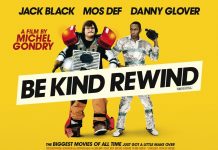 While this case is not about e-books directly, the precedent it sets could give an important boost to many instances of fair use, including those that are e-book related.
While this case is not about e-books directly, the precedent it sets could give an important boost to many instances of fair use, including those that are e-book related.
One of the most common problems with “fair use” is that it is a defense, not a right. That means that you can be perfectly within fair use on some media project, but if a content owner objects, he gets to sue you, and you have to go through the costly motions of a trial that could bankrupt you even if you come out the winner. So when someone threatens to sue you, rather than go to trial, you take the offending content down and big money wins.
However, Ars Technica reports that a case concerning a South Park parody video may have just shown the way toward a brighter future in which that doesn’t necessarily have to happen. The case involves a viral Youtube video called “What What (In the Butt)” that South Park parodied in a 2008 TV episode. South Park’s producers paid the musician and record company some license fees to make use of the song, but the company that made the video, Brownmark Films, sued in 2010 claiming it was an unauthorized derivative work.
In 2011, a judge threw out the suit altogether—but he threw it out before discovery (the process in which lawyers from both sides get to subpoena everything in sight for evidence to build a case) and before any trial. The judge said that this case was so clear, and the outcome was so obvious, that it was pointless to make the defendant spend any more money on defense.
Brownmark objected and appealed to the 7th Circuit Court of Appeals in Chicago, but earlier this month a 3-judge appellate panel upheld the original ruling, saying that a judge could decide the merits pre-emptively if they’re that obvious, and pointing out that Brownmark was starting to look a lot like a “copyright troll”.
Of course, the precedent will only officially apply in that circuit, unless Brownmark takes the matter to the Supreme Court. (I hope they do, if only so I can get a somewhat juvenile cackle at the thought of the nine Justices having to watch “What What (In the Butt)” themselves.) And it probably wouldn’t mean much for the higher profile e-book fair use cases such as the Google Books trial, where the question of fair use is rather more tricky than it appears.
Still, it’s nice to imagine a world where someone who is confident they have a good, obvious case for fair use will no longer have to knuckle under for lack of money.

































We also have the recent Georgia State University decision which focused on academic fair use and potentially the 11th Amendment (Sovereign Immunity) as well. The failure of the plaintiffs (several university presses financed by the Copyright Clearing House) sets a precedent that will discourage further challenges to this aspect of the fair use/fair dealing concept.
Fair use is a broad, vague but critically important concept in common law. Its scope encompasses commentary, criticism, news reporting, research, teaching, library archiving and scholarship. Imagine a world where we were all fearful of engaging in these practices lest we be financially pummeled by deep pocketed adversaries with self-serving motives.
Thanks for highlighting this, Chris. I had missed seeing it.
Frank: I’m not convinced that the GSU case tells us much of anything. There was a laundry-list of claimed violations, and a number of those were very weak claims. In some cases, the plaintiffs couldn’t even show that they had copyright to the works involved. But once you’ve gone to the expense to take the matter to court, you might as well throw in every possible claim you can think of. The plaintiffs did prevail on a few of the violations. As far as the win/lose results, it’s an unremarkable case.
The interesting part of the GSU case was that the judge drew a “bright line” for the amount of content that could be considered fair use. This is something that the courts have, in the past, been very careful *not* to do.
Kevin Smith (Duke) is the most authoritative person I know on this subject and this particular case. See: http://blogs.library.duke.edu/scholcomm/2012/05/12/the-gsu-decision-not-an-easy-road-for-anyone/
I don’ t think that he finds a “bright line” of any sort here. YMMV
The bottom line is that it will be a long time before fair use is similarly challenged. The Copyright Clearing House and these publishers gambled and lost. Educational fair use has not been challenged to date specifically out of the fear of establishing this very precedent. They went against conventional wisdom and now they and others are chastened. That’s a good thing IMHO.